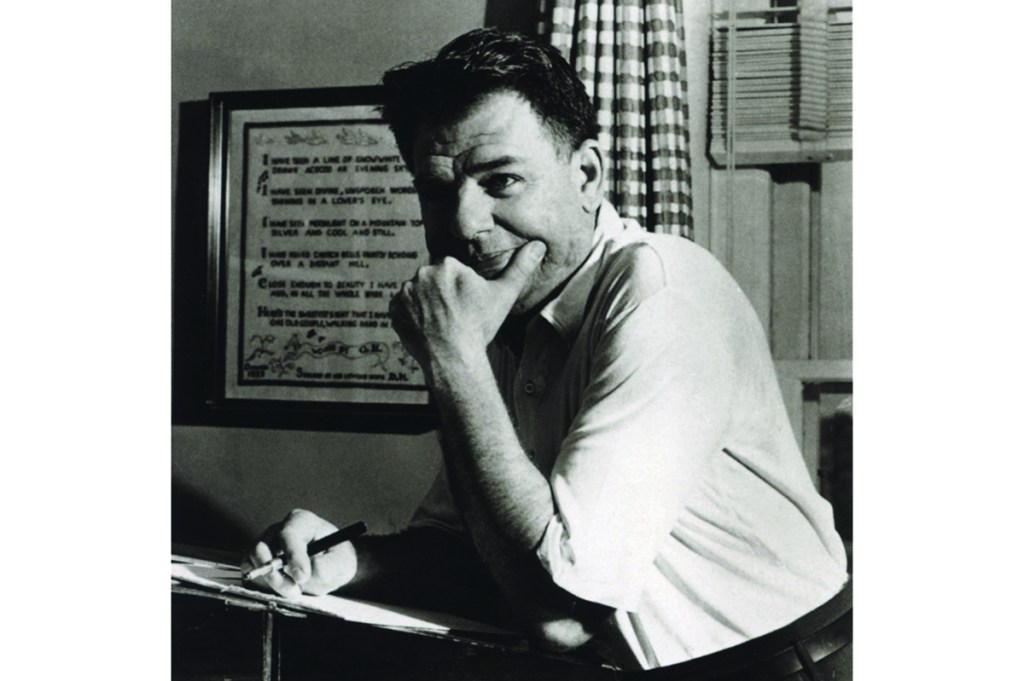Tolstoy or Dostoevsky? Picasso or Matisse? Lennon or McCartney? Impossible to call? No such quandary with Rodgers and Hart or Rodgers and Hammerstein. There are those that laugh at the city smarts of the words Larry Hart wrote with Richard Rodgers. And there are those that weep at Oscar Hammerstein’s home-on-the-range cornpone lyrics. But there is nobody that loves them both. Over to the pros then: while the likes of Frank Sinatra, Sarah Vaughan, Ella Fitzgerald and Tony Bennett have all given us their takes on Rodgers and Hart, nobody but Bryn Terfel has seen fit to make a Rodgers and Hammerstein CD.
Not that Hammerstein would have worried. As Mark Eden Horowitz points out in his introduction to this volume of letters, Hammerstein wasn’t interested in having his numbers covered. He didn’t think of them as numbers but as parts of a show — and if the show was put together properly, the parts were inseparable from it. Rodgers and Hart musicals don’t play much anymore. They’re lumpy and bitty and slowed to numbness by front-of-curtain scenes in which the characters tell each other the plot. Nothing so rudely mechanical in Carousel or South Pacific, where the songs arise organically from the action.
Calling Hammerstein “the most consequential figure in the history of the American musical,” Horowitz argues that his shows “dealt with serious and difficult issues” in order to “improve his audience.” So in Show Boat, written with Jerome Kern, Hammerstein dramatized the horror of racist oppression. In The King and I he pointed up the differences between liberalism and monarchism. In Oklahoma! he criticized fear of the other. In The Sound of Music he aired debates about faith and patriotism.
Among the letters gathered here is one from a City College student, seeking a “personal statement” for his essay on “The Theme of Brotherhood and Tolerance in the Plays of Oscar Hammerstein II.” Hammerstein replied by return: “I am very happy that you are writing this essay because none of the references to this theme in my plays is accidental.” None indeed. Though Hammerstein’s letter also suggests that his plays are better than those “written obviously to propagate these virtues… [because] the public resists direct propaganda,” it would take a very worshipful acolyte to defend the point. There is nothing more propagandist than South Pacific’s anti-racist harangue “You’ve Got to be Carefully Taught” — and nothing more wrongheaded either. All the evidence is that people are racist until they’re taught not to be.
Which doesn’t mean that Hammerstein was any kind of booby. Though he came from a show-business family (his father was a theater manager; his uncle a songwriter and dramatist; his grandfather, Oscar Hammerstein I, a composer and impresario), he started out reading law at Columbia. On the evidence adduced here, he’d have made a fine attorney. His letters on the folly of war and on the need for world government — among them some to General MacArthur — are as logical as they are heartfelt. His letter to a commie-baiting Hollywood lawyer would make a fine winding-up speech for a hanging judge.
His responses to what he describes as daily begging letters are politic but penny-pinching. As for a letter to his son Jimmy, who wants money to buy a car, Hammerstein demolishes every one of his kid’s arguments before magnanimously concluding:
If you decide to buy a car after all the evidence is in, and after measuring your own opinion and your own knowledge against the ones I have expressed, there will be no comeback from me. I will assume you have given it very careful thought and have made your own decision, and I will also assume that it is a wise decision, and made honestly.
It’s little wonder that Hammerstein emerges from these letters as a contented family man, forever turning work down to spend time with his wife and children. Good for him — though happiness writes white, and the main reason Hammerstein’s lyrics are also-rans in the Great American Songbook is their childish faith in the goodness of love. While Hart and Cole Porter (tortured homosexuals) and Johnny Mercer (a tortured heterosexual) could write with torrid clarity about heartache and heartbreak, Hammerstein was a Pollyanna on passion.
“I’m as corny as Kansas in August,” he has Nellie Forbush sing in South Pacific. His own love letters are sweeter than a Swiss roll in syrup: “Come to me in your glory… Come to me as I’ve dreamed of you… We shall be romantic Olympians in a world of literal mortals. Oh, let us be that, my Goddess — or nothing.” No, not a horny teen, but a thirty-something desperate to marry wife number two. Horowitz says that while Hammerstein might have lived and worked on a farm in Pennsylvania, he kept an apartment in Manhattan and was no “hayseed.” Fair enough. But it was Hammerstein who rhymed “pertaters” with “termayters” while Hart wrote “I’d go to hell for ya/ Or Philadelphia.”
This article was originally published in The Spectator’s November 2022 World edition.

























